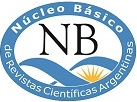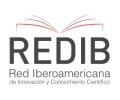Selección del Inóculo en la Producción Biológica de Hidrógeno
Keywords:
Hydrogen, Seed, Enrichment, Heat-shockAbstract
In the need to study clean bioprocesses, hydrogen arises as a promising alternative of energy. Biomass provides a method for producing hydrogen and the degradation of organic waste through fermentation. A crucial aspect is the inhibition of bacteria consuming hydrogen. The effect of pretreatment of the seed was investigated to obtain a hydrogen-producing species from natural consortia. The study was carried out in batch tests. Two types of treatment were realized: acid enrichment and heat-shock. Three types of consortia were evaluated: soil, compost and sludge. The treated seed was grown at pH 5.5 and incubated at 35 °C. The heat treatment was more efficient and completely inhibited the methanogenic microorganisms. The consortium sludge exhibited a higher rate of production and compost a strong trend to increase production.

















